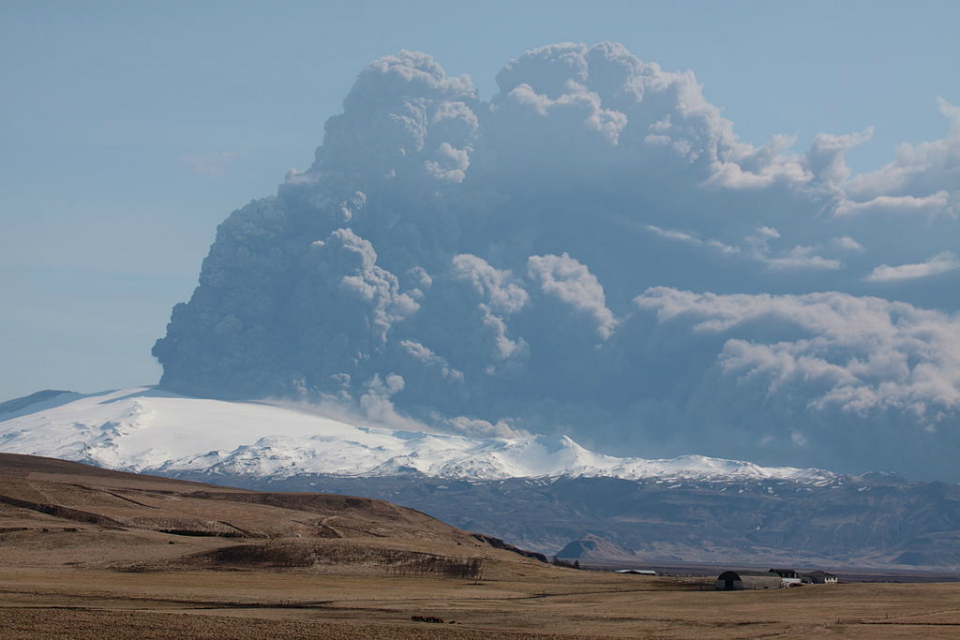Ambassadors for evidence
Article by Sir Mark Walport on the need for scientists and policymakers around the world to work together.

This article first appeared in The Guardian ahead of a global conference on science advice to governments.
Ebola infections, wars in the Middle East, an erupting volcano in Iceland - a glance at newspaper headlines in London last week shows how important issues requiring policy decisions are not constrained by national boundaries. However, the science advisory systems that help policymakers are predominantly national, matching the basic structure of democratic mandates. As our economies, our societies, our health and wellbeing become increasingly globalised, science advice needs to become much more international in its outlook.
The UK has a rich history of supporting government with excellent scientific evidence and advice. This year marks the 50th anniversary of the establishment of the UK Government Chief Scientific Adviser (GCSA). The first incumbent, Lord Zuckerman, created the post by evolution of the job of chief scientific adviser to the Ministry of Defence, a role that goes back to the first half of the 20th century.
The GCSA provides scientific advice that is relevant to the whole breadth of government policy. Government cares about the health, well-being resilience and security of its citizens, and about the economy. Science matters to every one of these areas, and scientific advice forms a crucial part of the evidence base needed to make wise policy decisions.
The UK science advisory system is undergoing a quiet revolution. There is an increased recognition by government of the importance of reliable evidence to enable the development of effective policy. Reforms of the UK civil service are encouraging those that work on policy development to be more open in their work and to prize the role of rigorous evidence. This is creating a greater pull for scientific input. In response, and encouraged by the emphasis on maximising the impact of publicly funded research, scientists are becoming more interested in the policy relevance of their work and more willing to engage directly with policymakers. This is creating a push from the scientific community for greater involvement in government policy.
An additional need is that many policies require international evidence and consensus. The number of humans and the scale of our activities are causing large impacts at a planetary level. These are changing ecosystems, supplies of natural resources, water cycles and climate. In turn these changes are challenging the health of humans and of many of the other species with which we share the planet. So the need for science advice is greater than ever, and that advice must be rigorous, independent and impartial.
At times of crisis, nations share similar needs for science advice. A volcanic eruption that fills the European airspace with ash, a flu epidemic that spreads rapidly along intercontinental travel routes, a tsunami that lands on several coastlines; each require science advisory systems that can advise national governments at the same time as building a shared global evidence base.
This week, scientific advisers from around the world have gathered in Auckland to discuss and compare how we provide scientific advice to our respective governments. Just as the form of governments varies from nation to nation, so too do our systems for providing scientific advice. This meeting provides an opportunity to learn from each other and build relationships that can help us to tackle global challenges. Working together we have the scale and voice necessary to have a global impact.
An important step in strengthening global collaboration between science advisers is identifying important areas where we can work most effectively as an international community. Formulating the right questions, identifying gaps in the evidence base and working out how to answer these questions will naturally follow.
The international scientific community is already showing how it can address global challenges. The Intergovernmental Panel on Climate Change’s (IPCC) approach to climate science shows what can be done with collaborative international relationships. Delivery of science is also an increasingly global collaborative activity, with genome science a shining example of what can be achieved. Many of our global environmental challenges require the development and application of global technological solutions. Sustainable sourcing of energy and power is supreme amongst these challenges - and the science, engineering, technology and social science communities will need to collaborate globally to reduce our global demand and to decarbonise our power supplies.
The need for scientists and policymakers to work together around the world has never been greater. Science needs to become a much more important component of diplomacy and foreign relations between nations.